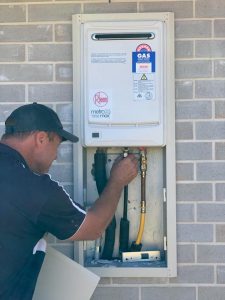Managing the Top Water Heater Crisis Situations
Managing the Top Water Heater Crisis Situations
Blog Article
The publisher is making a few good points related to Is Your Water Heater Leaking? as a whole in the content on the next paragraphs.

A hot water heater is just one of one of the most essential basic appliances that can be discovered in a home. With water heaters, you do not need to go through the tension of heating water manually each time there is a requirement to take a bath, wash, or the recipes. Nevertheless, there is constantly a possibility that your hot water heater would certainly act up just like most mechanical devices.
It is essential to note any type of little breakdown and tackle it quickly before points leave hand. Most times, your hot water heater begins to malfunction when there is a build-up of debris as a result of continual use. As a safety measure, regular flushing of your water heater is advised to avoid debris buildup as well as prevent functional failure.
Typical hot water heater emergencies and how to deal with them
Too little hot water
Dealing with an inadequate supply of hot water can be aggravating. It might be that the hot water heater can not support the warm water need for your house. To deal with this trouble, you could try to change your heater's temperature level dial and wait for a few minutes. You can ask for the aid of an expert plumber if the trouble continues. You can update your water heating system to one with a larger capability.
Fluctuating water temperature.
Your water heater might begin producing water of various temperature levels normally ice cool or hot warm. In this circumstance, the first thing you do is to guarantee that the temperature is readied to the preferred level. If after doing this, the water temperature maintains altering throughout showers or other activities, you may have a damaged thermostat. There could be a demand to replace either the thermostat or the heating unit of your water heater.
Leaky water heater container.
In this situation, you should turn off your water heating system, allow it to cool down, as well as meticulously look for the source of the issue. At times, all you require to do is to tighten up a few screws or pipe links in instances of small leakages. If this does not function and the leak persists, you may need to use the services of a technician for a suitable substitute.
Blemished or stinky water
When this happens, you need to understand if the problem is from the water or the storage tank resource. If there is no funny odor when you run cold water, then you are certain that it is your water heater that is damaged. The odiferous water can be triggered by corrosion or the accumulation of bacteria or debris in the water heating unit storage tank.
Final thought
Some home owners ignore little warning and minor faults in their water heater unit. This just causes more damages and also a feasible total break down of your appliance. You should handle your water heater mistakes as quickly as they come up to avoid more expenses as well as unnecessary emergency troubles.
With water heating units, you do not need to go via the anxiety of home heating water by hand every time there is a demand to take a bath, do the washing, or the meals. It may be that the water heating unit can't sustain the hot water need for your house. Your water heating unit can begin creating water of various temperature levels usually ice cool or scalding hot. If there is no amusing smell when you run chilly water, after that you are specific that it is your water heating unit that is defective. The odiferous water can be caused by rust or the accumulation of bacteria or sediments in the water heating unit tank.
Water Heater Burst: Why This Happens And What To Do Next
Water Heater Explosion Warning Signs
Since storage water heaters are made of metal and store large volumes of heated water, they carry an increased risk of leaking or even exploding as they begin to rust at the fittings and seams over time. If the thermostat controlling the water temperature within the tank is faulty, or if mineral buildup inside the water heater prevents the thermostat from sensing the water’s temperature correctly, the water could become overheated. This will expand its volume within the tank, causing it to press at the tank’s fittings and seams. If these fittings and seams are rusted or corroded, the pressure could result in a leak or even an explosion.
Here are some risk factors and warning signs of an increased risk of water heater leak or explosion:
Your water heater is more than 10 years old. Your water heater makes clanking, banging or rumbling noises as it heats up, indicating that sediment has built up and hardened inside the tank. There is visible rust on the outside of the water heater, especially located at the pipe fittings or the seams that run down the tank. There is rusty water coming from your water heater, indicating that there may be rust building up inside. Your water heater is leaking, which could indicate either a crack somewhere in the tank or a malfunctioning temperature-and-pressure (T&P) relief valve. What To Do When Water Heater Leaks
If you find water dripping or seeping out of your water heater, or pooling around it, it means your water heater is leaking. If you find a leak, it may be best to call a plumbing professional to diagnose the problem and determine how best to handle it. If you choose to tackle it on your own, there are a few things you can do.
TURN OFF THE POWER
Next, shut off the power to the hot water tank at your home’s electrical breaker box. If you don’t shut off the power, the heating elements within the tank could continue to stay hot, which could pose a fire risk.
If you have a gas-powered water heater, you’ll also need to shut off the gas line leading into the tank.
FIND THE LEAK
Now it’s time to determine where the leak is coming from. Likely locations are the T&P valve, the drain valve or one of the pipes or fittings that feed into the top of the tank. If you see any rust or corrosion on the outside of your water heater’s tank, pipes or fittings, these could also be the source of the leak.
REPAIR THE LEAK
Once you determine the source of your water heater leak, you’ll have a better idea of what steps you need to take to fix the problem. It may be a simple fix—such as using a wrench to tighten fittings or replacing the T&P valve—but it may be something more complicated. You may even need to drain the tank, remove the water heater and install a new one.
https://www.abchomeandcommercial.com/blog/water-heater-burst/

As an enthusiastic reader about The Importance of Water Heater Maintenance, I figured sharing that piece of content was a great idea. Remember to take the opportunity to distribute this blog posting if you liked it. Thanks for your time. Please visit our site back soon.
Request Your Service Report this page